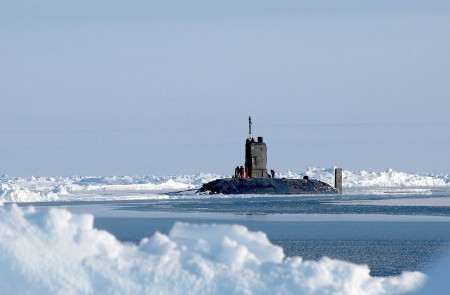
This article was originally published by the World Policy Institute on 9 March 2016.
In many public debates around the globe, the narrative of ‘”Arctic War” has become the predominant narrative of the future of Arctic security:
Driven by climate change, the Arctic ice cap is melting and large amounts of untapped oil and gas resources as well as lucrative shipping routes are becoming increasingly accessible. As a part of their response, Arctic states are making far reaching territorial claims in order to secure this tremendously rich treasure, and some, especially Russia, are emphasizing their regional ambitions by increasing their military capabilities in the High North. Trapped in an unavoidable arms race, the Arctic states are on a slippery slope toward military confrontation.
While advancing this narrative, supporters too easily apply interest-driven predictions of an uncontrollable arms race in the High North. Interestingly enough, one region seems to be exempted from this trend: the Arctic itself. This either means that the Arctic is “sleepwalking” into “unavoidable military escalation,” blinded by its long history of cooperation, or that it is worth taking a second look at the “narrative” of Arctic War.
Natural Resources, Territorial Claims, and Militarization?
First, what would be the source of a potential Arctic conflict? For many observers this seems to be very clear: economic interest. In 2008, a U.S. Geological Survey considered the Arctic to contain most of the world’s still undeveloped oil and gas. In addition, as the ice melts, lucrative shipping routes, like the Northwest Passage and the Northern Sea Route, are becoming more and more accessible. Since then, nearly every national submission to the extension of the Arctic state’s continental shelf (and thus the right to exploit the resources in the seabed) is considered a “provocative,” sometimes even “offensive” act.
